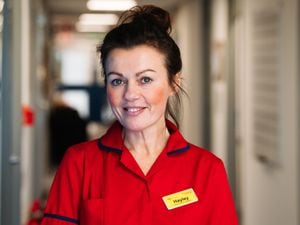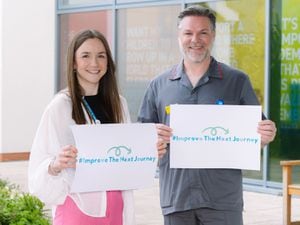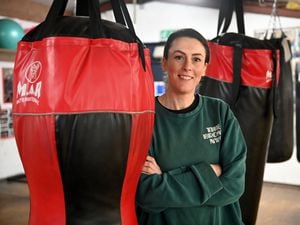Demand for answers over Britain's 'worst ever maternity scandal'
Parents make plea after inquiry reveals problems at maternity units across Shropshire have being going on for many decades.
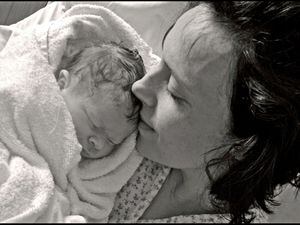
It has been two years in the making – and without the tenacity of parents the report outlining failings in maternity care many never have been written at all.
The first findings from an inquiry into care at the county’s major hospitals have revealed problems that led to the deaths of babies and mothers.
First ordered by the-then health secretary Jeremy Hunt in 2017, the inquiry into maternity services at Shrewsbury & Telford Hospital NHS Trust has been led by maternity expert Donna Ockenden.
More on the scandal:
Although no official report has been released, conclusions of an interim report have been leaked, and they reveal the scale of the concerns over treatment at the trust, with warnings that it will become the NHS’ worst ever maternity scandal.
Alarmingly were it not for the persistence of Shropshire parents Rhiannon and Richard Stanton Davies, and Kayleigh and Colin Griffiths, the details may never have come to light at all.
Couple in long fight for answers over daughter's death
Mr and Mrs Stanton-Davies’ daughter, Kate, died when only a few hours old after being born with anaemia at Ludlow Hospital on March 1, 2009.
It was only in 2018 – nine years later – that Heather Lort, the midwife responsible for her care, was struck off after a panel concluded her misconduct was so serious that it led to a loss of chance of survival for Kate.
The panel had ruled on a catalogue of harrowing failings including not recording Kate’s heart rate for more than an hour and 15 minutes, not increasing surveillance when decelerations were recorded, failing to arrange an emergency transfer when Kate was born ‘pale and floppy’, and then when she was found to be ‘grunting’ at 10.30am, until her collapse.
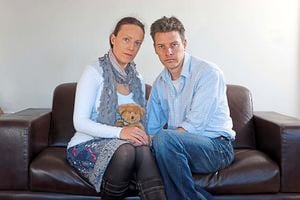
Other charges included failing to put Kate in an incubator when her temperature did not improve with skin to skin contact, and not providing effective resuscitation because she stopped before Kate’s heart rate reached 100bpm, and before her care was transferred to “an appropriate practitioner”.
She also failed to accompany Kate when she was transferred to the neonatal unit, or provide an adequate handover to paramedics.
Mr and Mrs Stanton-Davies have spent the 10 years following Kate’s death fighting for accountability over the failings in her care, and the manner of the investigation into what went wrong.
She said: “This has been dubbed the biggest maternity scandal in the NHS’ history, how many times do we have to have headlines like this before we have change?”
The initial scope of the inquiry was to examine 23 cases, but it has grown to more than 270 covering the period from 1979 to the present day.
The cases include 22 stillbirths, three deaths during pregnancy, 17 deaths of babies after birth, three deaths of mothers, 47 cases of substandard care and 51 cases of cerebral palsy or brain damage.
Mrs Stanton-Davies said she had not seen the leaked report, but had been told that the final version will show that the failings in her daughter’s death had happened before.
She said: “They condemned Kate and it cost her her life. Every mistake that had happened to her happened previously. That is what we have learned in our interaction with Donna Ockenden.”
She said the details released show that the inquiry needs increased resources, and has also encouraged any affected families who have not yet come forward to contact Mrs Ockenden as a matter of urgency.
She said: “They need to treble her resources, and please, any families who think they are affected, please come forward to Donna Ockenden. You are not alone.”
Mrs Stanton-Davies said that her battle was driven by her daughter’s death, adding: “Everything I have done is in Kate’s memory, it is her legacy, her work through me, is preventing the harm of other babies and mothers and that is the reason I am doing it.”
She also told of the toll that 10 years of campaigning has taken on her and her husband.
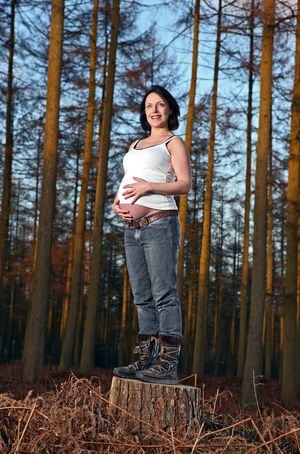
She said: “It is difficult. You re-traumatise yourself every time you touch it again.
"We take a lot of time out from this stuff but something comes along like now and you are thrown back into it again.
"You can say you’re not interested in commenting but I do not trust anyone to get my message across. But, banging on for ten years the message has not got through to anyone it needs to.”
The report says that babies and mothers suffered avoidable death and children were left with permanent disability.
It also states that staff at the trust routinely dismissed parents’ concerns, got dead babies’ names wrong and, in one instance, referred to a baby who died as “it”.
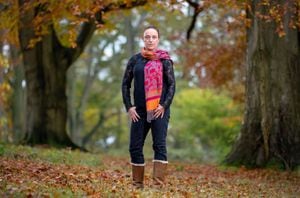
In another case, parents were not told their baby’s body had arrived back from the post-mortem examination, and it was left to decompose so badly that the family never got to say a final goodbye.
The study warns that, even to the present day, lessons are not being learned and staff at the trust are uncommunicative with families.
It also points to an inadequate review carried out by the Royal College of Obstetricians and Gynaecologists (RCOG) in 2017 and the “misplaced” optimism of the regulator in charge in 2007.
In the report, Mrs Ockenden wrote: “No apology will be sufficient or adequate for families who lost loved ones to avoidable deaths, or whose experience of becoming a parent was blighted by poor care and avoidable harm.
“Many families have described to me how they live on a daily basis with the results of that poor care.”
Responding to the leaked details Mrs Ockenden said the information was not meant for publication and was from an early version of the report.
She added that she was in the process of producing a report that covers the concerns of all families involved in the review.
Until now, Morecambe Bay, which saw the avoidable deaths of 11 babies and one mother at Cumbria’s Furness General Hospital between 2004 and 2013, was the worst ever maternity scandal in the history of the NHS.
Bill Kirkup, who chaired the Morecambe Bay inquiry, has said the interim review made for “ghastly” reading and showed “unmistakeable parallels” with the scandal at Morecambe.
The individual cases that have led to the inquiry make tragic and emotional reading.
Mr and Mrs Griffiths’ daughter Pippa died on April 27, 2016, from a group b strep infection – the most common cause of meningitis in newborns.
An inquest heard that Shrewsbury and Telford Hospitals NHS Trust admitted failings in the information provided to Mrs Griffiths, which could have prevented her newborn daughter’s death.
The trust also accepted that if questions had been asked when Mrs Griffiths raised concerns to a midwife over the phone then Pippa would have been taken to hospital and, in all likelihood, survived.
Hospital trust 'addressing maternity service issues'
The hospital trust has struggled in recent years and is currently in special measures following a CQC inspection last year.
It has a new chief executive, Paula Clark, after her predecessor Simon Wright stepped down earlier this year.
Reacting to the leak she said her staff had not seen the findings of the interim report, but have been acting on evidence from previous cases.
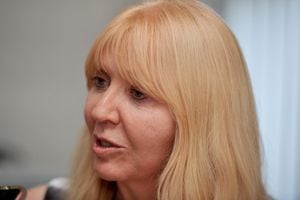
She said: “On behalf of the trust, I apologise unreservedly to the families who have been affected.
"I would like to reassure all families using our maternity services that we have not been waiting for Donna Ockenden’s final report before working to improve our services.
"A lot has already been done to address the issues raised by previous cases.
“Our focus is to make our maternity service the safest it can be.
"We still have further to go but are seeing some positive outcomes from the work we have done to date.
“We have not seen or been made aware of any interim report, and await the findings of Donna Ockenden’s report so that we can work with families, our communities and NHS England/Improvement to understand and apply all of the learning identified.”

